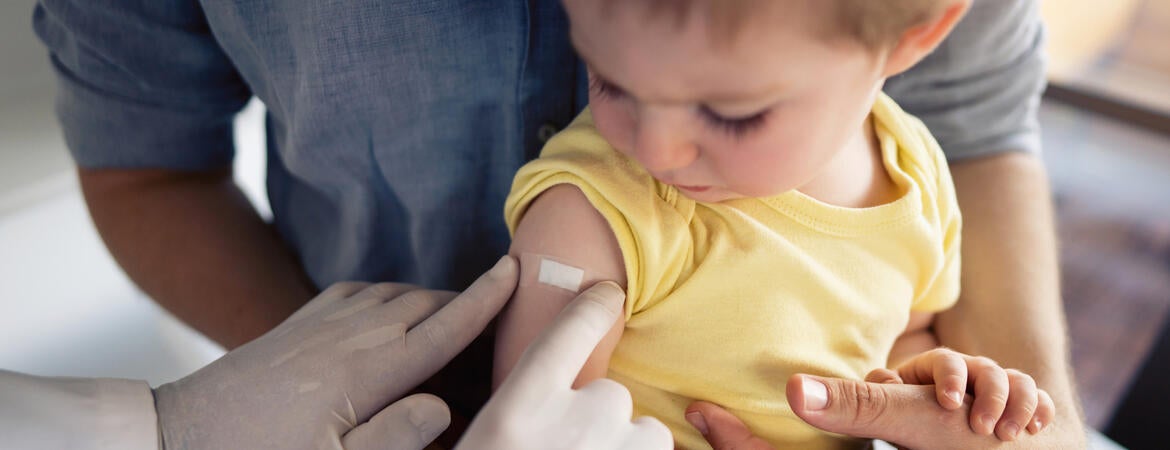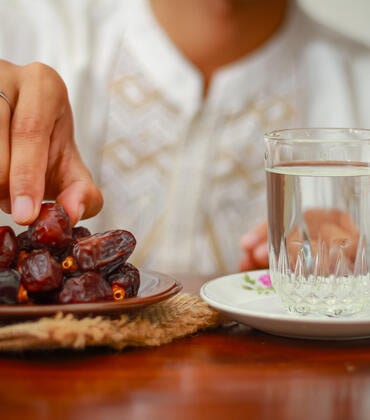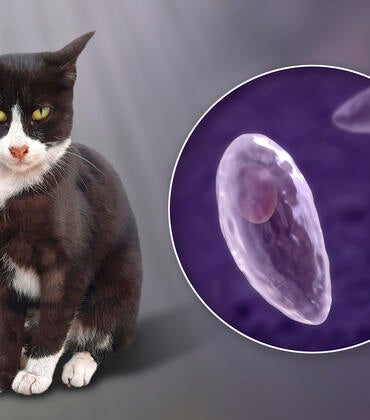
The Centers for Disease Control and Prevention recommends COVID-19 vaccines for children as young as 6 months. In this Q&A, vaccine expert Dr. David Lo, a distinguished professor of biomedical sciences at the University of California, Riverside, School of Medicine, answers questions some parents may have about vaccinating their very young children.
Q: Are there any concerns for children as young as 6 months to get a COVID-19 vaccine the same time they get other shots? What might some common reactions in children be to these vaccines?
A. Within the first 18 months after birth, the CDC recommends at least 25 separate vaccine injections, and these vaccinations are aimed at protecting against a range of infectious diseases including both bacterial and viral infections, so the addition of two COVID-19 vaccine shots is not a major addition. The side effects are very familiar to parents with small children: soreness at the injection site, low grade fever, and so on. The COVID vaccine has been no different.
Q. Do COVID-19 vaccines work for kids the same way as they work for adults?
A. The COVID vaccines work the same way for adults and children. In all cases, the vaccine triggers lymphocytes (cells of the immune system) to be activated against the attachment protein of the virus, and one of the most important parts of the immune response is the generation of antibodies against the protein, to block virus attachment and infection of your cells. The main difference between adult and child vaccines is the dose, since children have smaller bodies.
Q. Why should parents get their children as young as 6 months vaccinated?
A. While children between 6 months and 18 years tend to get milder disease, COVID infection has still killed hundreds of children, so prevention is certainly one good reason to get children vaccinated. Also, we are still learning about the risk and long-term impacts of “long COVID,” which can have serious lasting effects. However, one of the most important reasons to vaccine the kids is so that they will be far less likely to be able to get infected and transmit the virus to others in the family. If you have any family members that are older or have weaker immune systems, prevention of virus transmission by the kids will be a very helpful step.
Q. Why did it take so long after the first vaccines were released to develop a vaccine safe for children? Is the vaccine formulaically different, or is the duration a product of longer and more testing?
A. Keep in mind that vaccines historically have taken decades to develop, test, and approve, so by conventional standards, this approval within so short a period is still relatively speedy. However, it took a bit longer than approval for adults because we are especially careful to make sure that anything we expose our children to is as safe as possible. While it was possible to quickly test the vaccines in millions of adults, it was not as easy to do the same for children because there are additional steps taken to ensure safety and it takes longer to recruit enough children for the studies. The timing of the approval process is partly dependent on the design of the trials to be sure that enough study subjects are enrolled to have robust statistical power, and it is also affected by the review process between the Food and Drug Administration and CDC to be sure that all the data is carefully examined. With all drugs and vaccines, follow up is for a long period to be sure that any minor or rare side effects can be discovered later.
Once the vaccine was thoroughly tested and approved for adults, there was enough certainty about safety that it could be tested in children. In addition to safety, the studies in children also must examine how well it protects against infection, since children’s immune systems do not behave exactly the same way as adult immune systems, and one could not simply predict that the vaccine would behave the same way in adults and children. Monitoring in both adults and children will be ongoing for some time; so even though the child vaccine is pretty much the same as the adult vaccine, except for the dose, there will still be monitoring for any unanticipated effects.
Header photo credit: SrdjanPav/Getty Images.



